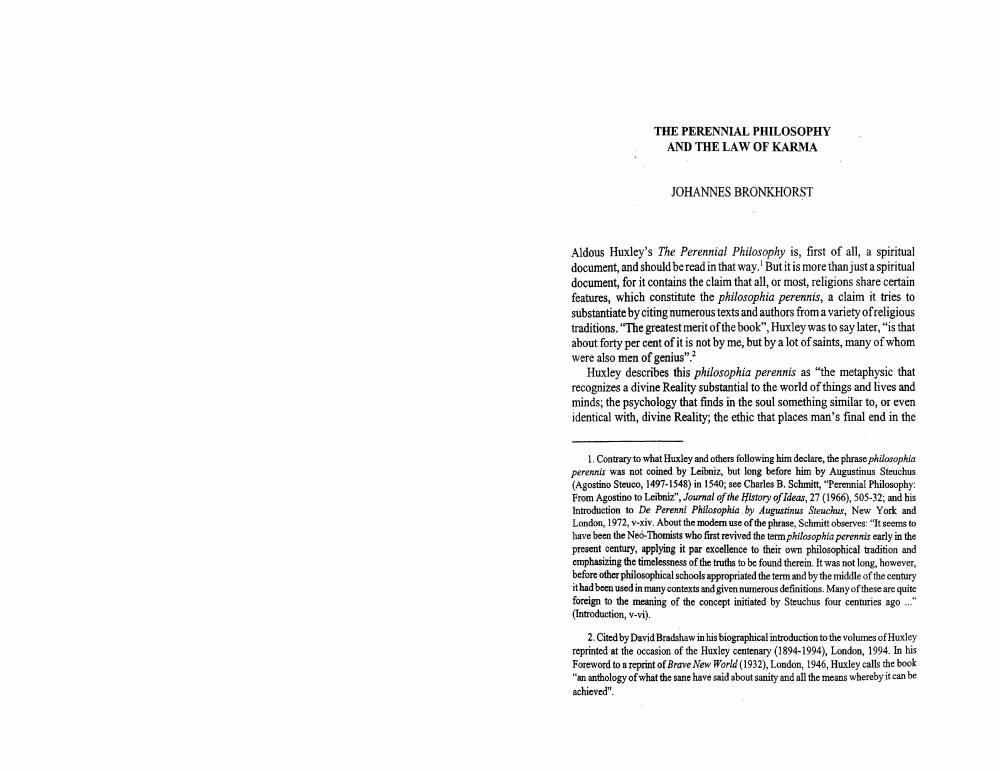Book Title: Perennial Philosophy And Law Of Karma Author(s): Johannes Bronkhorst Publisher: Johannes Bronkhorst View full book textPage 1
________________ THE PERENNIAL PHILOSOPHY AND THE LAW OF KARMA JOHANNES BRONKHORST Aldous Huxley's The Perennial Philosophy is, first of all, a spiritual document, and should be read in that way. But it is more than just a spiritual document, for it contains the claim that all, or most, religions share certain features, which constitute the philosophia perennis, a claim it tries to substantiate by citing numerous texts and authors from a variety of religious traditions. "The greatest merit of the book", Huxley was to say later, "is that about forty per cent of it is not by me, but by a lot of saints, many of whom were also men of genius". Huxley describes this philosophia perennis as "the metaphysic that recognizes a divine Reality substantial to the world of things and lives and minds; the psychology that finds in the soul something similar to, or even identical with, divine Reality; the ethic that places man's final end in the 1. Contrary to what Huxley and others following him declare, the phrase philosophia perennis was not coined by Leibniz, but long before him by Augustinus Steuchus (Agostino Steuco, 1497-1548) in 1540, see Charles B. Schmitt, "Perennial Philosophy From Agostino to Leibniz", Journal of the History of Ideas, 27 (1966), 505-32, and his Introduction to De Perenal Philosophia by Augustinus Steuchus, New York and London, 1972, v-xiv. About the modem use of the phrase, Schmitt observes: "It seems to have been the Neo-Thomists who first revived the term philosophia perennis early in the present century, applying it par excellence to their own philosophical tradition and emphasizing the timelessness of the truths to be found therein. It was not long, however, before other philosophical schools appropriated the term and by the middle of the century it had been used in many contexts and given numerous definitions. Many of these are quite foreign to the meaning of the concept initiated by Steuchus four centuries ago ..." (Introduction, v-vi). 2. Cited by David Bradshaw in his biographical introduction to the volumes of Huxley reprinted at the occasion of the Huxley centenary (1894-1994), London, 1994. In his Foreword to a reprint of Brave New World (1932), London, 1946, Huxley calls the book "an anthology of what the sane have said about sanity and all the means whereby it can be achieved".Page Navigation
1 2 3 4 5 6 7 8
